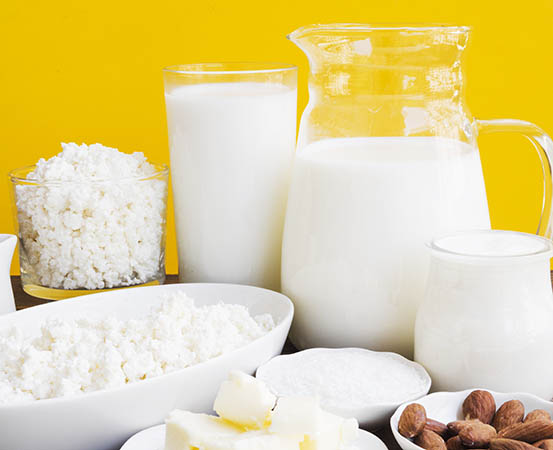
The role of micronutrients and minerals is important in managing blood glucose levels. Dr Shaival H Chandalia, endocrinologist and diabetologist at Jaslok Hospital and Research Centre, Mumbai, says that the intake of minerals such as zinc, magnesium and chromium helps increase insulin receptors (proteins that play a key role in glucose metabolism) and control diabetes.
A deficiency of these mineral supplements could increase oxidative stress and insulin resistance.
According to Dr Subrata Das, senior consultant, internal medicine and diabetology, Sakra World Hospital, Bengaluru, these diabetes-friendly supplements could help reduce the dependency on medicines that are used to regulate blood sugar levels.
Oxidative stress and insulin resistance
According to Dr Chandalia, an increase in free radicals (by-products of cellular metabolism) causes oxidative stress. “Certain enzymes help in the reduction of free radicals or in the binding of free radicals to prevent them from causing havoc in the cell. But if there is a deficiency of these minerals, or if the enzymes are affected, then these free radicals are not absorbed. It will trigger increased insulin resistance and poor glycemic control,” he adds Some studies suggest that long-term oxidative stress can contribute to the development of a range of chronic conditions, including diabetes.
Supplements for diabetes management
Zinc
Dr Das points out that zinc plays a key role in improving glucose metabolism by enhancing insulin sensitivity.
Poor sugar levels are associated with low zinc levels. “People with diabetes are more likely to have zinc deficiency,” says Dr Shaival. Zinc plays a role in processing and storing the insulin molecule in the beta cell of the pancreas and insulin secretion, he adds.
Experts say that 25mg/day of zinc is sufficient. “Excessive zinc consumption ends up causing gastric irritation, vomiting and nausea,” says Bengaluru-based nutritionist Vasundhra Aggarwal. Intake of pumpkin seeds, cashews, quinoa and cheese will help to fulfil the zinc deficiency, she adds.
Magnesium
“Magnesium is a co-factor required for the transport of glucose into cells and carbohydrate metabolism,” says Aggarwal. “It contributes to your body’s ability to release insulin and helps the cells use insulin more effectively.”
Dr Shaival says that increased insulin resistance, as well as reduced insulin secretion, occur due to magnesium deficiency. People with diabetes are at increased risk of cardiovascular disease, and lack of magnesium can lead to certain arrhythmias, he adds. Research shows that supplemental magnesium may help people with diabetes improve their glucose levels and enhances insulin sensitivity in people with a high risk of developing diabetes.
According to experts, the best sources of magnesium are oats, barley, chickpeas, flax seeds and soybeans. Aggarwal recommends the intake of 250–350 mg/day of magnesium; if magnesium is consumed in a large amount, magnesium toxicity (overdose) could occur.
Chromium
Chromium is a trace mineral present in many food sources including green beans, broccoli, oranges and Brazil nuts, points out Soumya S Nair, a dietician at ESIC Hospital, Kollam, Kerala. According to experts, chromium supplements can help to improve glucose metabolism and reduce insulin resistance in people with diabetes.
“Chromium works through various insulin receptor signals that improve insulin sensitivity and help insulin to function more effectively,” says Dr Chandalia. A study revealed that chromium did not affect lipid or glucose metabolism in those who did not have diabetes, but it greatly enhanced glucose metabolism in people with diabetes.
Selenium
“Selenium helps in reducing insulin resistance and also acts as an antioxidant,” says Dr Das. It eliminates toxic metabolites from the body and reduces the risk of developing heart disease and stroke.
“Selenium induces glucose production in the liver,” says Nair. There is no overproduction of glucose and the risk of hyperglycemia also reduces, she adds.
According to Nair, consumption of selenium supplements must be in moderation, as high doses of selenium can be toxic. The recommended daily intake of selenium for adults is 50 micrograms per day.
Adding green leafy, eggs, unpolished rice (brown rice) and mushrooms in your diet will help in providing a sufficient amount of selenium, she adds.
Vanadium
Experts say that vanadium helps in diabetes management by improving insulin sensitivity and lowering blood sugar levels. A study published in the Journal of Clinical Endocrinology and Metabolism found that vanadium improved insulin sensitivity in both healthy individuals and those with type 2 diabetes.
Intake of vanadium in excess amounts (more than 100 mg/day) lowers blood sugar levels that increase the risk of hypoglycemia, says Aggarwal. Mushrooms, shellfish, black pepper and parsley are good sources of vanadium, she adds.
Calcium
“Calcium concentrations in blood and tissues are critical for insulin secretion by pancreatic beta cells,” says Aggarwal. A study shows that a combined intake of vitamin D and calcium is helpful in optimising glucose metabolism.
Leafy green vegetables, dairy products and soybeans are good sources of calcium, “The recommended daily intake of calcium is between 1,000 and 1,200 mg/ day, says Nair. Calcium also helps in reducing the risk of osteoporosis, a condition commonly seen in elderly people with diabetes.
Natural sources vs synthetic supplements
Experts recommend taking these minerals from natural sources. “Supplements should not be taken without a doctor’s prescription,” says Dr Das. He adds that excessive intake of these minerals can have a harmful effect on different organs in the body.
According to Dr Shaiva, intake of these minerals from natural sources like fruits and vegetables will ensure that you won’t consume them in excess.
Takeaways
Type 2 diabetes management is all about a healthy diet, good physical activity and weight management. Natural mineral supplements can help reduce insulin resistance and improve glucose metabolism. Experts highlight the importance of including mineral-rich food in the daily diet.



Comments
Post a Comment